Newsletter August 2021
Corona and the Lockdown
The year 2021 is also in India so far all about corona. And not least for the children of Nav-Jeevan. At the beginning of February the classroom lessons were allowed to start again, but at the beginning of March again a complete lockdown was announced. The children had to go home and the online lessons started again. And it still is at the moment.
Many of our children have hardly any access to the internet. They depend on one of the parents. Only when a parent is at home they have access to the phone, which they have to share with brothers and sisters. Classes 9 and 10 are taught online and video films are made for the lower classes.
A large number of tribal children from the villages do not have access to a phone or the internet at all. They are also not allowed by the authorities in the hostel because of the corona maesures. So it is almost impossible to reach these children.
Because we did not receive a contribution from the tribal department last school year and the contribution of Tech Mahindra has stopped, we have had to end a number of contracts of teachers.
Last year, all pupils were promoted to the next class regardless of the results. Class 10 was still taking exams at the time. This year was different. In the past year, there were no national exams, even for class 10. The children have been assessed on the basis of the results on their school exams over the past 2 years.
We are proud that despite the corona lockdown, all 29 candidates obtained their high school diploma. Among them also the first 17 tribal students.
Passed Class 10 High School Diploma
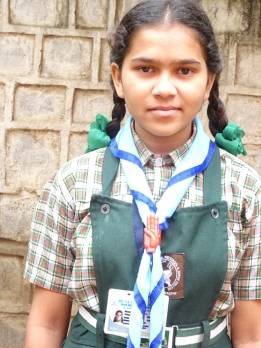
Achal Sayam tribal
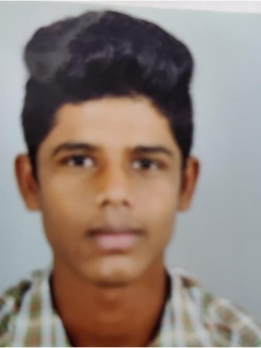
Ahfazzaudin Sheikh
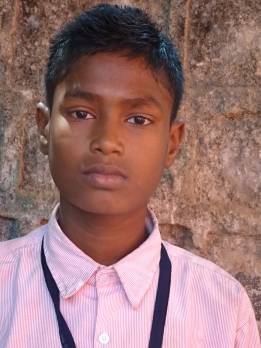
Animesh Irpate tribal
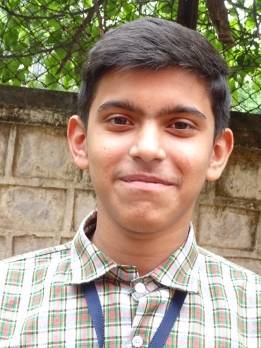
Ayush Nistane
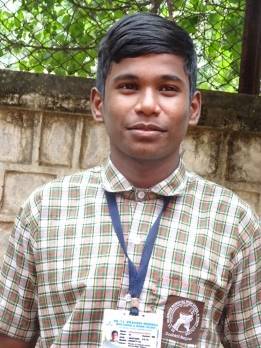
Bhuneshwar Bante
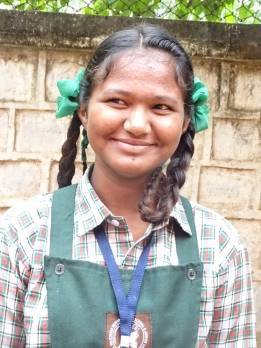
Gunjan Warthi tribal
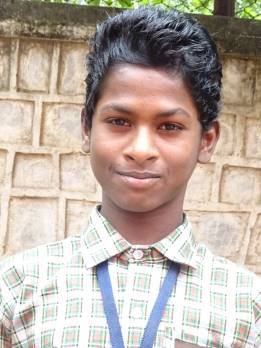
Harsh Uikey tribal
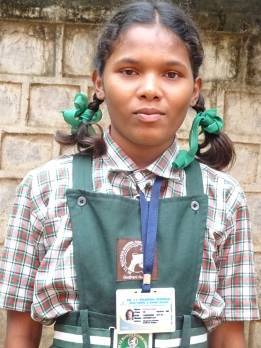
Karina Irpate tribal
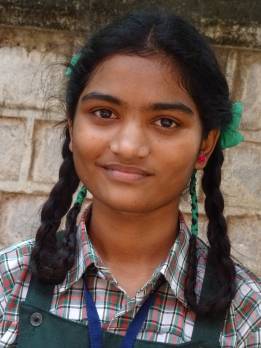
Khushi Margade
Khushi Morkar
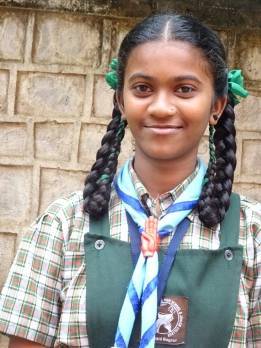
Kritika Wadve tribal
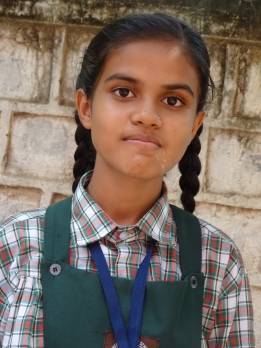
Neha Rabde
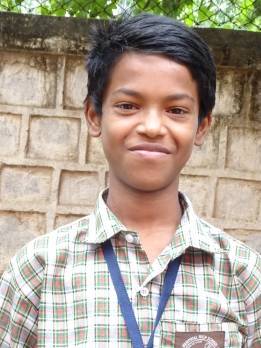
Omkar Madavi tribal
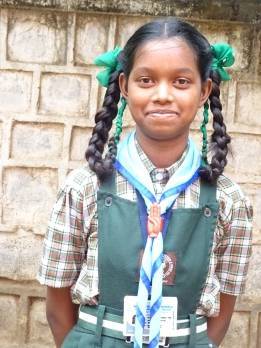
Pallavi Ahake tribal
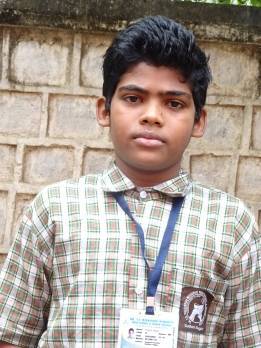
Pravin Tekam tribal
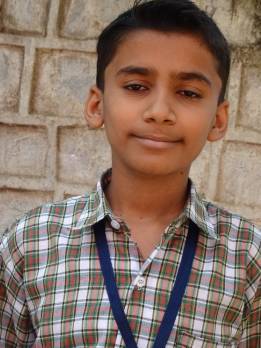
Rishabh Mishra
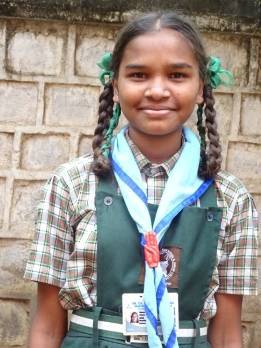
Ritu Masram tribal
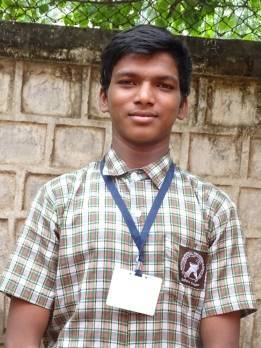
Rohan Bhosle tribal
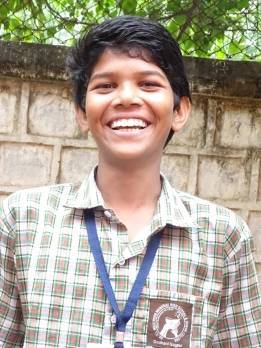
Sahil Maraskolhe tribal
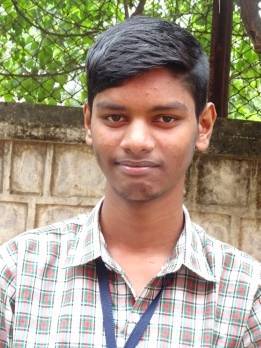
Shankar Dongre
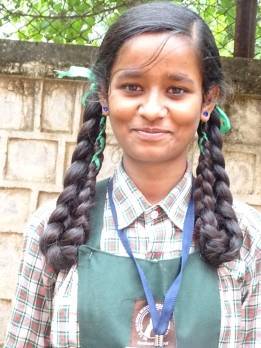
Shraddha Mahatre
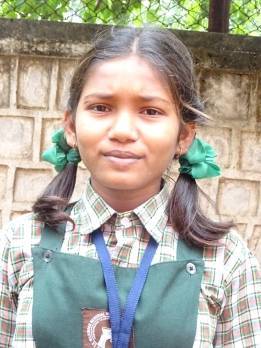
Sneha Kumbhare tribal
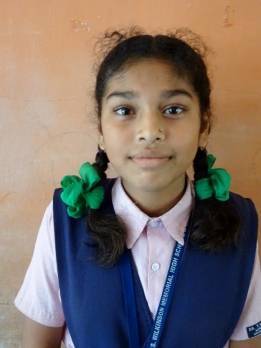
Sonam Meshram tribal
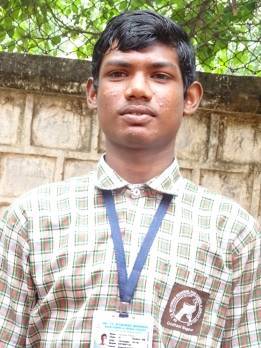
Tanmay Tekam tribal
Tejaswini Khandatee tribal
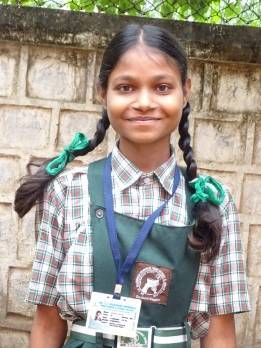
Vaishali Shete
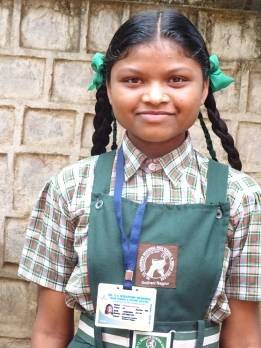
Vandana Korram
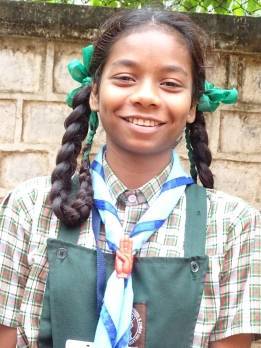
Vishakha Walke tribal
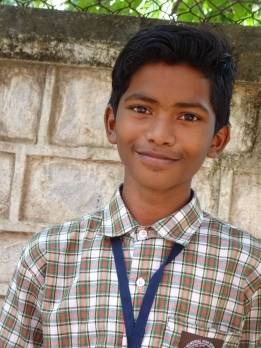
Yogendra Uikey
Educating Tribal Children
By Aneeta Patel
India has a large number of tribal people who live in the vast hinterland of the country. These indigenous people are hunter gatherers and live off the bounty of the land.
They live deep in the forests and their association with modern life is minimal to say the least. But with forests becoming protected their natural source of sustenance is becoming bleak.
The Government has decided to give these children an opportunity to get educated. The Government encourages schools to reach out to these people and convince them that education will help them build a new life and not be totally dependent on the vagaries of nature.
Nav-Jeevan Sanstha thought that this was the perfect opportunity to help another part of society which is by and large unserved. We decided to send our staff deep into the forests and jungles around Nagpur to meet these people and convince them that education was the way to a better life.
Nagpur is known as the "Tiger Capital" of the world and it is no exaggeration. Where else in the world can you drive just an hour out of the heart of the city and encounter a big cat in the wild? Given this, our staff had to be very careful as they headed out to meet the tribal people. They could not travel after dark for fear of wild animals. Also, forest roads are usually mud tracks and had to be traversed with great caution. And as if that is not bad enough, Communist groups target tribal people to create chaos for the Government. Their cadres infiltrate the forest areas, Government vehicles are banned from entering the area. These groups are armed and do not hesitate to use them on Government officials foolish enough to let themselves be identified. There are many instances of Government vehicles being bombed or Government officials being shot or worse beheaded. The Government is helpless to bring this to an end.
With most of the forest being now out of bounds, the tribal people don’t have much to do these days as their movements are curtailed. Tribal parents brew a local alcohol and spend most of the day in their huts lying in an alcoholic stupor. Their children are left running around, usually naked, fending for themselves outside. It’s no easy task for our staff to gather these parents and convince them that education is the way to help their children get a better life. The teachers then have to provide clothing for the young ones and transport them back to the school safely.
Educating tribal children is a unique experience – very different from dealing with slum children. Tribal children are not used to authority of any kind. They are also accustomed to being totally free. They have no concept of bathrooms and squat down to urinate or defecate where ever they want – even if it is the corridor of the school. Physically they are very strong and are very good in sports. Once they get the hang of books, they are very clever but they have to be taught creatively. It’s a challenge but a satisfying one. This year our first batch of tribal children would have sat for their board exams. Unfortunately, because of the pandemic this was not possible but we have had to score them according to their performance in the previous years. It’s a pity because this was a particularly clever lot and we’ve had the pleasure of seeing them grow from the wild things they were when they first entered our school to the clever students they have become today.
Further Education
Unfortunately, we had to temporarily quit Junior College. Although we have a permit, the last two years have been very difficult about taking the exams, the number should be too low. As a result, we were forced to let the children participate through another school. The schools asked for so much money for this, for a whole year of lessons and exams, that we had to decide to stop. This is to our great regret. We kept junior college open for a number of years in the hope that something would change. We hired teachers and taught the children in two disciplines, art and commerce.
So in the end we had to decide to stop. We don't have enough people at the moment to get everything arranged like the restart of the tribal program, the construction of the hostel etc. Once we have completed these matters, we will make an ultimate attempt to eventually restart junior college at our school.
We decided to pay for further education for some children who have no one at all.
The classroom lessons for the nursing training started again in the second week of February. In addition to Saloni, two other girls were admitted to nursing school. Both girls are orphans, too. One is Saloni's younger sister Isha and the other is Simran. While we waited for the opening of the nursing college, both girls were accompanied by our teachers and attended the online classes. The teachers of the nursing training are very satisfied with their results. Isha and Simran are working hard.
Our star student Anil Yadav also did well in the second year of the BCCA (Bachelor of Commerce and Computer Application). He also took classes online and works as an administrative intern in the school office.
Yash Khobragade attended a training camp last year that prepares him to join the army or police. The camp is about 70 km away from Nagpur and we try to visit him once a month. After our first visit, the owner of the camp was so impressed with our work that Yash was allowed to continue the training for free. Yash will finish this training year in August.
Yash's younger sister Swati completed her twelfth year online at indira Gandhi Open University and was mentored by our teachers. No results have been announced yet. Swati actually wanted to go to dance school but she was strongly discouraged from doing so. After that, her choice fell on nursing training. This is also because her friends do this. But her coach also thinks this is a less good idea. She'd rather she started commerce. After that, she can find a good job. She doesn't think Swati is suitable for nursing because she hasn't had biology and chemistry at Junior College. Let's wait and see what is going to happen.
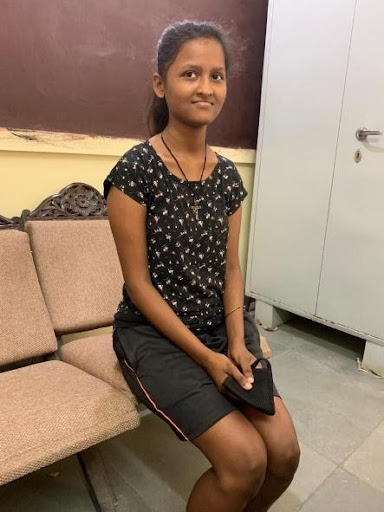
Little Sejal wants to become a chartered accountant and attended a nearby school in her 11th year. All schools were closed for most of the school year 20-21. Only the online classes were open and Sejal attended seriously and regularly. At the end of the year, she scored 87.6% on her school exam. She did this entirely on her own, without the help of others. The only subjects she did not score above 90% were English and accounting. In the new school year she will start in class 12 and then she will go for the training as a chartered accountant.
Ashish Korram wants to be a mechanical engineer. We placed him at Hanskrupa Junior College, where he's taking the direction of science. He scored 78.5% last year. In the coming school year he will finish the last year of Junior College.
Subsidies
We received a subsidy from the Imelda Nolet Foundation for the renovation of the window frames and the painting of the building. The painting has started. The building is put in the primed paint.
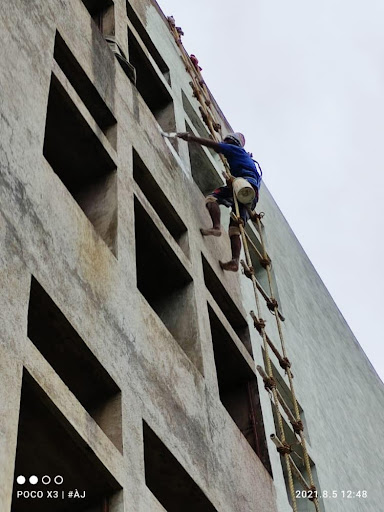
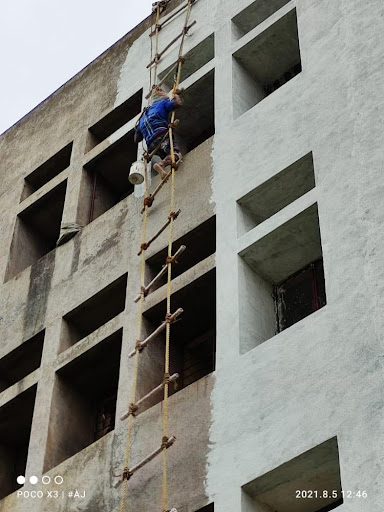
We also received a grant from Stichting den Brinker and Stichting van Helden Tucker for the further nursing courses.
Hostel Building
The construction of the new hostel has many setbacks. In February they started raising the land and building the wall, but in March a complete lockdown was announced again and work was halted.
At the beginning of June, it seemed that the strict lockdown in India was coming to an end and that the construction workers could get back to work. However, the curfew was only partially lifted. No one is allowed out from 4pm. That is why construction has still not started again. The construction workers come from villages and normally work long days. This is not an option if they have to be back by 4pm. They would then have to stop at 3pm to reach their homes on time. Letting them stay overnight on the construction site is not an option. Because of the monsoon rains, we would have to build huts. Taking into account the cost of building huts that should protect them from rainy weather conditions and also providing them with other amenities such as drinking water, toilets etc would put too much pressure on our budget. In addition, the low output that can be delivered under these conditions. This has led us to decide to wait until the early curfew is abolished. However, this takes much longer than we anticipated. We hope that this curfew will soon come to an end.
Email Newsletter
We prefer to send the newsletter by e-mail. We would like to ask you to provide your e-mail address to avandeven@home.nl or nav-jeevan@home.nl. Do you have a partner or children who also like to be kept informed, nice! Please also provide their e-mail address(s).
If you prefer to receive the newsletter on paper in the future, please let us know.
On behalf of the children and staff of Nav-Jeevan Sanstha, we would like to thank you very much for your donations.
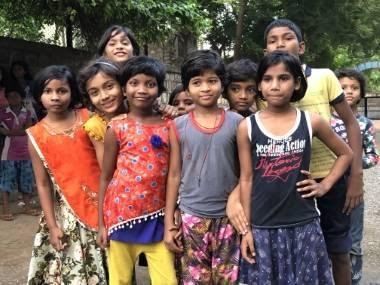
Annelies van de Ven
Derde Rompert 26
5233 AJ Den Bosch
phone 0031-653382577